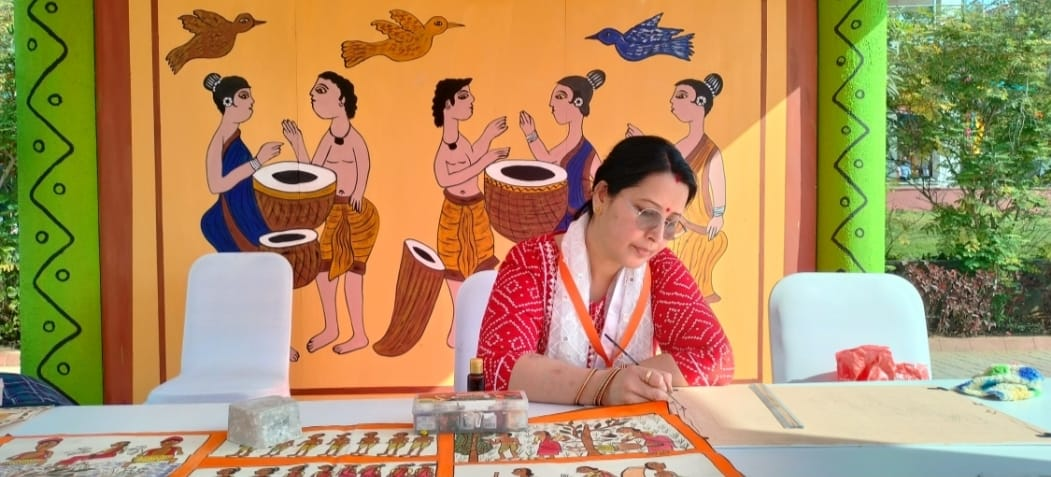Jharkhand Switch to Hindi
Jharkhand Panchayati Raj Department Published Draft of PESA Rules
Why in News?
According to information received from the media on July 26, 2023, the Jharkhand Panchayati Raj Department has published the provisional draft of the Jharkhand Panchayat Provisions (Extension to Scheduled Areas) (PESA) Rules-2022.
key points
- Its draft has been published using the power conferred by sub-section-1 of section-131 of the Jharkhand Panchayat Raj Act-2001. In this way, opinions will now be taken from the common people. After that, the department will finally publish the final draft.
- In the draft which has just been published, detailed rules have been laid down regarding the functioning of Panchayats. The name of this manual has been given as 'Jharkhand Panchayat Provisions Extension Manual on Scheduled Areas-2022'.
- In this, the secretary will mean the panchayat secretary of the gram panchayat. Gram Sabha President shall mean Village Head, Gram Sabha President, Manjhi Munda, Manki, Doklo, Sohor, Panch Parganait, Padha Raja, Pahan, Mahato. The executive committee of the gram panchayat will be the elected head and ward member at the gram panchayat level.
- Forest land, minor water bodies, minor minerals, intoxicants, and natural resources have been defined in this manual. The rights and operations of the Gram Sabha have been fixed on it. Along with this, the formation of the Gram Sabha and the structure of the village has been mentioned in detail.
- The functions of the permanent committees of Gram Sabha such as the Village Development Committee, Public Property Committee, Agriculture Committee, Health Committee, Village Defense Committee, Infrastructure Committee, Education and Social Justice Committee, and Monitoring Committee have been explained.
- Along with management of community resources, conservation of traditions and settlement of disputes, hearing of disputes in Gram Sabha, and determination of punishment by Gram Sabha, the appellate authority on the decision of Gram Sabha have also been included in detail.
- Apart from these, approval of the development plan, identification of beneficiaries and control over the works of social sector institutions have also been mentioned point-wise.
- Monitoring of programs by Gram Sabha, implementation of decisions of Gram Sabha, planning by Gram Sabha, identification of beneficiaries, monitoring of social sector institutions, social audit by Gram Sabha, utilization of funds by Gram Sabha and its attestation have also been included.
- It has also been included in the manual that all persons shall have equal rights to fish in the natural water resources under the village area. There will be no endowment of such water resources with any particular person or organization under government provisions.
- Gram Sabhas will be able to make plans for minor minerals like soil, stone, sand, moram etc. and use them. The Gram Sabha will be the operator of the sand ghat or can use it for local needs at its own level. The revenue received from this will be deposited in the fund of the Gram Sabha.
- The Gram Sabha will also ensure that no mining is done in the Sand Ghat with JCB or any other machine. There will also be a ban on sand mining and lifting during the monsoon period.
- No mining lease or opencast mining permit for minor minerals will be issued without prior consultation with the gram sabha or panchayat related to the scheduled areas. Priority will be given to the Scheduled Tribes Cooperation Committee for its approval. The Mineral Department will have to take the recommendation of the Gram Sabha before allowing commercial use of minor minerals.
- The gram sabha will decide the royalty on minor forest produce. Certain rights and regulations have also been fixed by the Gram Sabha regarding the return and transfer of land. Market management will also be done with the help of Gram Panchayat.
Jharkhand Switch to Hindi
Fellowship to 4 Women from Jharkhand including Neelam Nirad
Why in News?
On July 27, 2023, according to the information received from the media, four cultural workers of Jharkhand, including Jadopatiya painter Neelam Nirad, received the Fellowship Award for the year 2020-21 from the Ministry of Culture, Government of India.
Key Points:
- Three cultural workers from Jharkhand, including Jadopatiya painter Neelam Nirad, have received the Senior Fellowship Award for the year 2020-21, while an artist from the state has been selected for the Junior Fellowship Award for the same year.
- It is a great coincidence that all the four names from Jharkhand who have been selected for the Senior and Junior Fellowship Awards for this year are women.
- Dumka's Neelam Nirad has been selected for tribal painting, Ranchi's Seema Devi for folk songs and Ranchi's Monita Sinha for theatre and Akanksha Priyadshirni of Bokaro for the junior fellowship award for Chhau dance.
- This fellowship award is given to distinguished art-seekers doing excellent work in the field of culture, which is selected at the national level. This fellowship is available for two years, which has a provision for an extension of six months as per the scheme.
- Neelam Nirad is an eminent artist of tribal Jadopatiya painting. His works have been appreciated in national painting exhibitions. She has also been honoured.
- Jadopatiya's painting is related to the Santhal tribe. Pictures of this style are made on vertical scrolls of paper and cloth. Each panel has a different subject and there are 16 to 32 pictures on one panel. These are made with natural colours and the traditional artist sings a song while showing it, describing the story of the paintings.
- Neelam Neerad is furthering this painting style by learning from its hereditary artists and has also done many experiments in it.










%20MPPCS%202025%20Desktop%20E.jpg)
%20MPPCS%202025%20Mobile%20E%20(1).jpg)



.jpg)






.png)
.png)



 PCS Parikshan
PCS Parikshan


